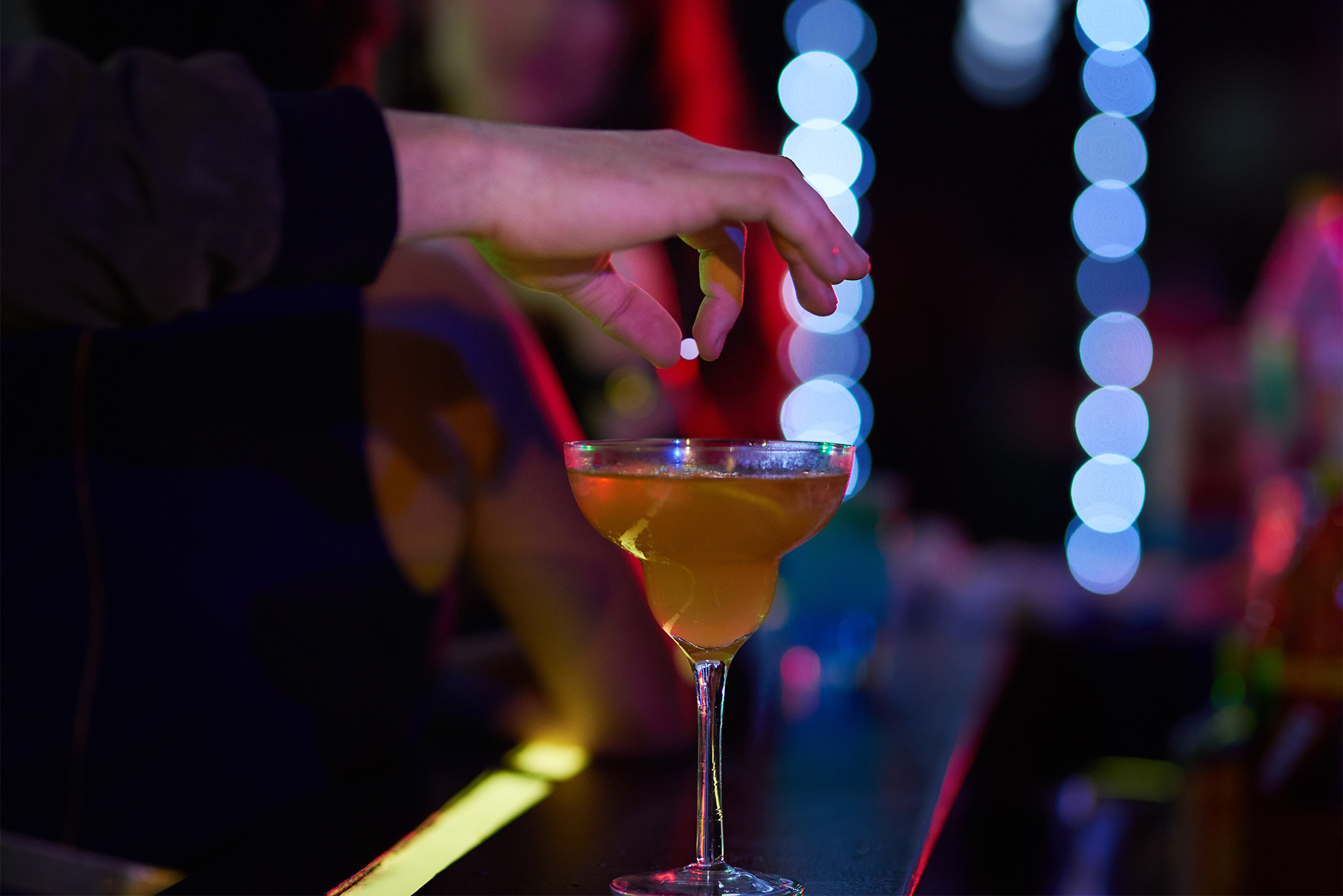With Reports of Spiked Drinks on the Rise in Boston, Tips for Staying Safe

Boston police have recorded 71 allegations of drugged drinks so far this year, and BU Police Department officers say there’s been a noticeable increase throughout the city in the last year and a half. Photo courtesy of Peopleimages/iStock
With Reports of Spiked Drinks on the Rise in Boston, Tips for Staying Safe
Don’t drink from shared punch bowls, keep an eye on your drinks, BUPD and SARP staff advise
After two Boston University students reported that their drinks may have been spiked, and amid an uptick in similar reported cases in Boston recently, public safety officials are encouraging BU students to stay alert and use some common risk-mitigation techniques when they’re out and about.
Boston police have recorded 71 allegations of drugged drinks so far this year, and BU Police Department (BUPD) officers say there’s been a noticeable increase throughout the city in the last year and a half.
Two BU students reported that their drinks were spiked at the end of September, although one later said she’d just had too much to drink, says BUPD Detective Lt. Kelley O’Connell. In both cases, the incidents occurred off campus, O’Connell says.
“This is something we’ve been keeping on our radar and seeing over the last year and a half,” she says. “Regional law enforcement partners, including those at other universities in Boston, are reporting unusual activity” in allegations of spiked drinks.
Part of the problem is that medical professionals have a short window of time, usually only a few hours, to test for drugs before a person’s body metabolizes them, O’Connell says. “It’s very difficult for emergency rooms to detect these drugs.”
The BUPD, and O’Connell in particular, are working closely with area police departments to monitor these reports. O’Connell is also in touch with the district attorney’s office.
She and BUPD Chief Kelly Nee warn students to look out for the following symptoms, which might indicate that they’ve consumed a drugged drink:
- Heavy limbs or feeling paralyzed
- Loss of control of one’s body
- Loss of motor skills
- Gaps in memory
- Numbness
- Vomiting
Ashley Slay, Sexual Assault Response & Prevention Center (SARP) assistant director of interpersonal violence and prevention, adds that sometimes the best approach to safety is within a community.
“First, I want to say to survivors that this is not your fault,” Slay says. “Our violence prevention approach has largely focused its efforts on bystander intervention, a model that places responsibility on our community to look out for one another. Risk-reduction methods can be victim-blaming instead of placing blame where it belongs, which is on the person who is trying to cause harm.”
For Slay and the team at SARP, the uptick in reported spiked drinks brings with it a related concern about drug-related assaults. “We know that risk-reduction methods can help people feel empowered and safer if they know that there is something they can do to prevent themselves from being harmed,” she says.
Slay, O’Connell, and Nee encourage students to watch their drinks, make sure they are served to them directly, and keep their hand or a cover over their drink when they’re not looking at it. Additionally, they advise students not to drink from community punch bowls or from other sources where the exact contents of their drink are unknown.
Students should contact BUPD at 617-353-2121 if they suspect any of their drinks have been spiked and call 911 if they need immediate medical attention. Students can also contact SARP at 617-353-7277 for support.

Comments & Discussion
Boston University moderates comments to facilitate an informed, substantive, civil conversation. Abusive, profane, self-promotional, misleading, incoherent or off-topic comments will be rejected. Moderators are staffed during regular business hours (EST) and can only accept comments written in English. Statistics or facts must include a citation or a link to the citation.